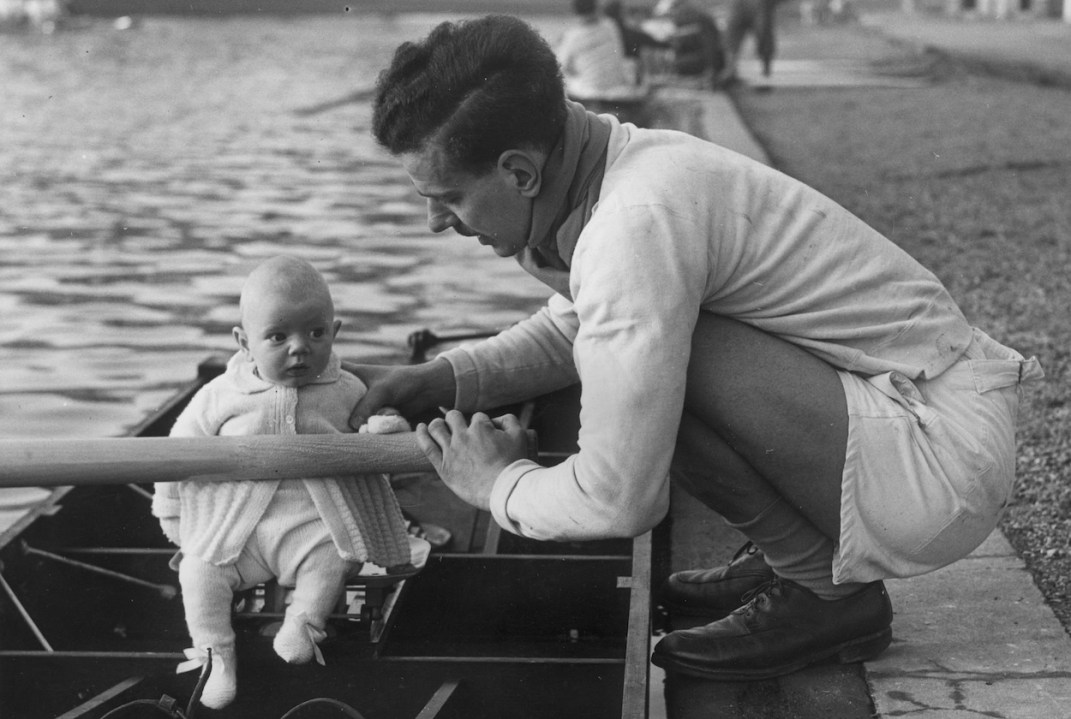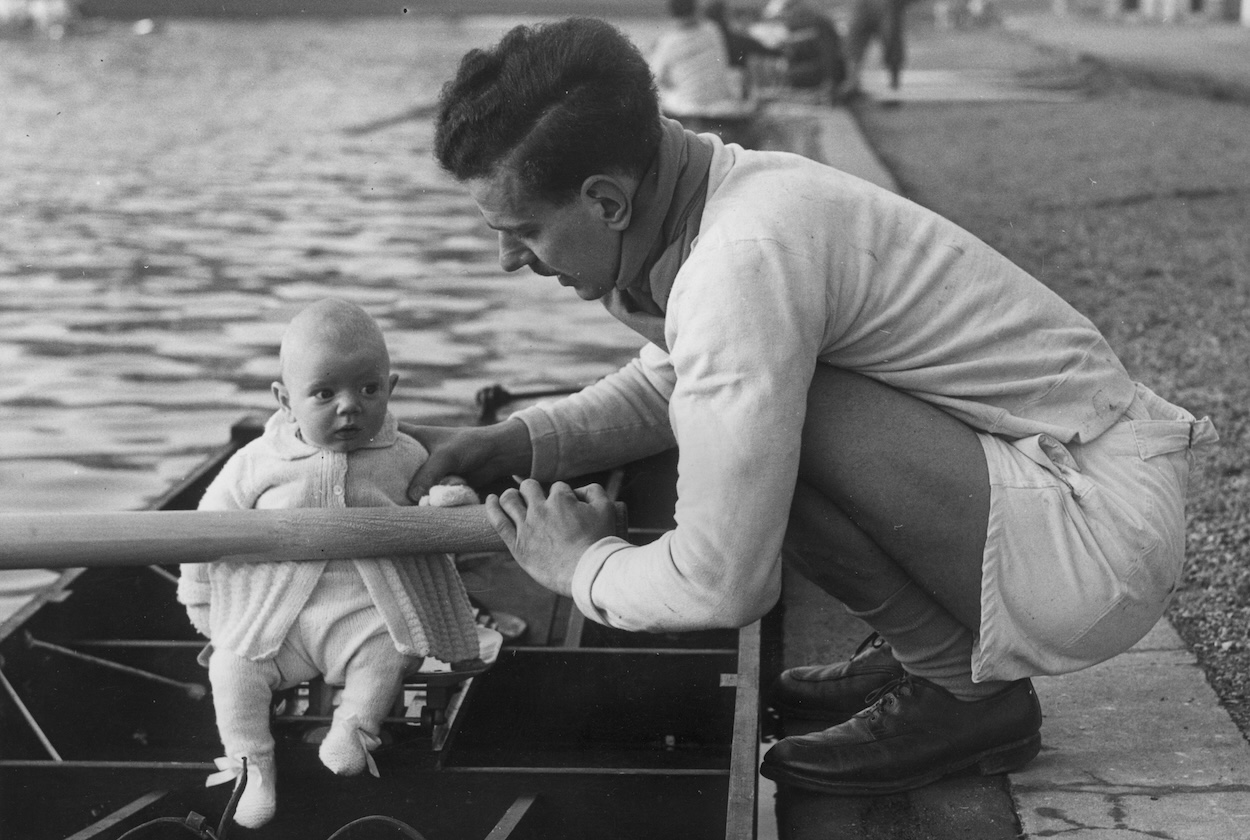I was a late starter at everything. After drifting through my youth, and numerous false starts in life and work, I only found a committed relationship in my thirties and married in my forties. Even my second career as a writer waited until my fifties. So, too, did my unexpected third career, as a parent.
For years, my significantly younger wife and I ached for a child. When it didn’t happen naturally, we embarked on a long, uncertain, painful and stressful IVF journey to fulfil our longing. When we accepted that we had reached the end of that road – or rather our endurance of its rockiness was exhausted – to our amazement and joy, a precious embryo decided to stay, and our daughter was born after a smooth and trouble-free pregnancy.
We left it too late to give her a brother or sister, and when she is an only child of 25, I’ll be 81
The average age of a new father in Britain and Australia is 33; in the US it is 31. When my daughter was born in late 2018, this new father was a generation beyond that at 56, with ample salt-and-pepper hair to prove it. But I plunged enthusiastically into full-time parenting. Changing nappies, endless clothes-washing, cleaning up all manner of baby and toddler messes, being on call through sleepless nights – and despite creaking a bit to keep up with her – I did it all, and revelled in it.
From the start, later-in-life fatherhood gave a fresh sense of purpose, a reason to get up each morning that work rarely does. My daughter has just notched up her sixth birthday and finished her first year of school, and the sense of wonder at the life that providence entrusted to me hasn’t faded. Each day is a new adventure for her and for me as I’ve watched her grow her own unique character. She’s an intelligent, happy, outgoing and gregarious child and, although she has her volcanic eruptions, she shows instinctive kindness and empathy for others, and laughs and laughs.
Apart from occasionally being mistaken for my daughter’s grandfather, being an older dad is richly fulfilling. It’s true what they say – young children keep you young. I entertain her, nurture her, laugh with her. She invites me into her childhood, her world of wonder. It is an honour greater than any other I could ever hope to receive.
Hopefully, my being nearly 60 years older than my daughter gives her something special too. When I was her age in the late 1960s, the world was an entirely different place, and much simpler to grow up in. Personal computers, let alone the internet, were the stuff of far-fetched science fiction. Telephones had fixed lines and rotary dials. The Beatles were riding high in the charts; steam trains still ran; TV was a handful of channels in black and white; and man had yet to go to the moon. I’ve been able to give my daughter some benefit of my memories and experience going back six decades, and perhaps a little hard-learned wisdom along with it. She’s absorbed my passion for history and sings along lustily to ‘Georgy Girl’ and ‘Do Wah Diddy Diddy’, while I’ve learned to ‘enjoy’ Frozen and, lately, Moana.
Her friends apparently think she’s lucky I’m her dad precisely because I am noticeably older than theirs. But I’ve come, reluctantly, to ask myself: is she really? Born in 1962, I struggle to relate to the challenges in front of my child now, let alone the future in which she’ll grow to adulthood. The information overload the internet brings. The pleasures and dangers of growing up online in the social media age. The foreboding that, as she sets out on her schooling, the galloping rise of artificial intelligence may ruin her chances of a satisfying professional career. Even immutable values my generation were taught, not least the verity of millennia that a person’s gender is a chromosomal reality, not something fluid that’s ‘assigned at birth’, are disparaged and no longer treated as unquestioned certainties. Boomer dinosaur that I am, I struggle to cope with this frightening new world myself, let alone give a six-year-old fatherly guidance in navigating it.
But what I fear most for in my daughter’s future is my unwanted impact on it. Even now in good health for my age, I struggle to keep up with her relentless, high-energy vivacity. We left it too late to give her a brother or sister, and when she is an only child of 25, I’ll be 81 – if I get there. Is it fair for a young woman on the threshold of adulthood to be stuck with an old man, whose health in body and especially mind could well be failing? She deserves better, and I should have thought of this before she came to be.
Film star Hugh Grant said recently that having five children in his fifties ‘made him a better actor’. I’d rather hope it’s made him, like me, a better person. I cherish every moment with my daughter, watching her grow and thrive. Yet I still can’t shake the fear that, in pursuing older fatherhood so relentlessly, I’ve mortgaged my child’s future.
With hindsight, I’ve come to see that fatherhood over 50 is more about the parent satisfying the desire for having a child, and less the best long-term interests of the child as she grows up. Given what I now know, I regret the consequences of leaving parenthood so late, but not the outcome. Should my daughter ever read this, she can be assured absolutely that she was meant to be. She was so dearly wanted by her mum and dad, and is so dearly loved. Her being here is a joy to all she knows and, however long my remaining life will be, I will do all I can to ensure her happiness. That’s all any parent can do.








Comments